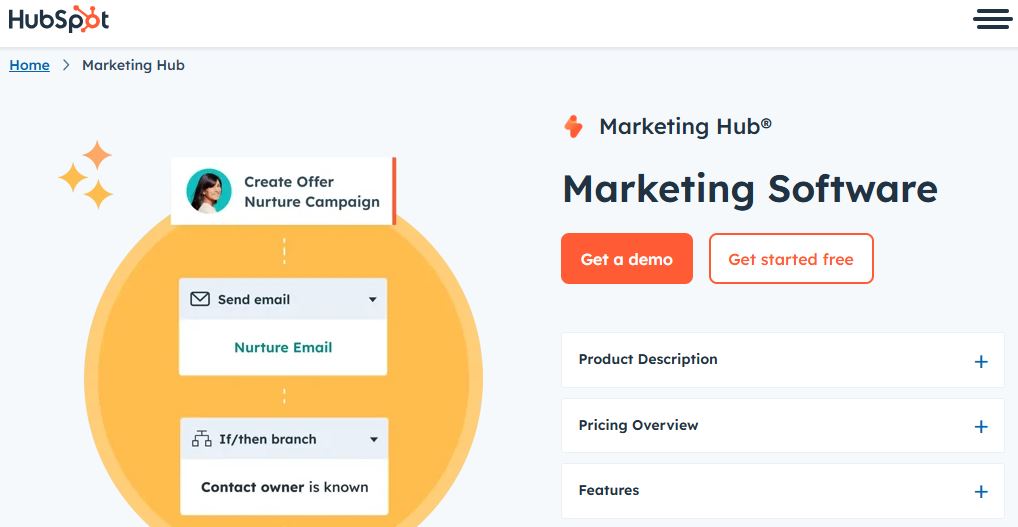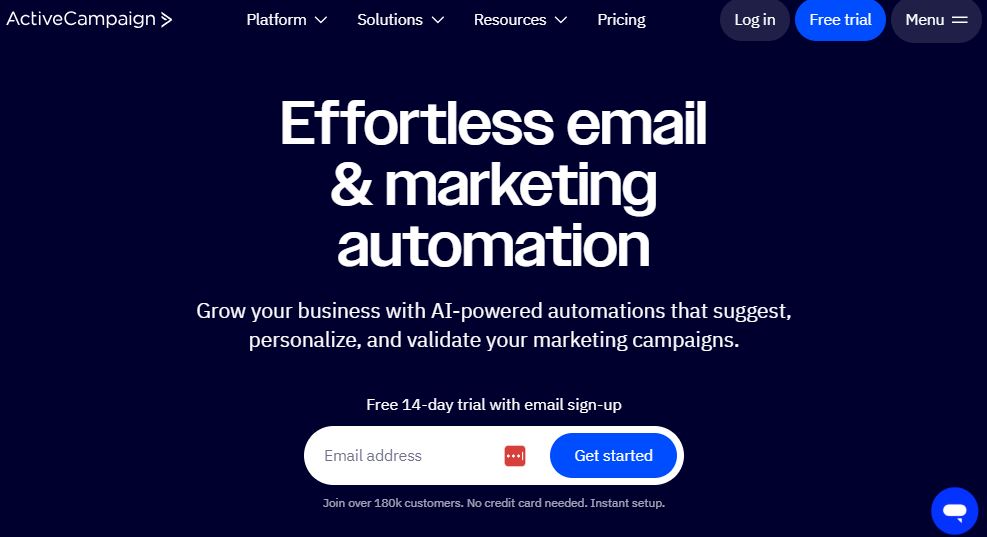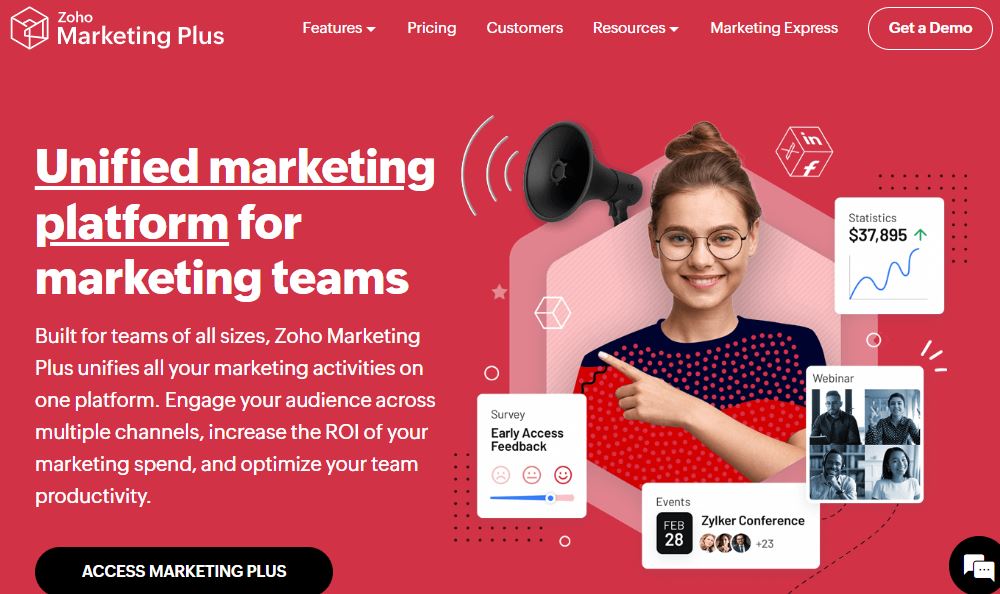Choosing the right marketing software can significantly impact your business’s growth and efficiency. With so many options available, it’s easy to feel overwhelmed. To simplify your decision-making, we’ve put together a list of the 10 best software for marketing, highlighting their key features, strengths, and potential drawbacks. Whether you’re a startup or an established company, there’s a tool here to fit your needs.

Table of Contents
ToggleWhy Choosing the Right Marketing Software Matters
The right marketing software can streamline your workflows, improve customer engagement, and boost your overall campaign performance. It helps automate repetitive tasks, manage multiple channels, and track results in real time. With businesses increasingly relying on data-driven strategies, having the right tools ensures you stay competitive, make informed decisions, and maximize your marketing efforts.
Top Criteria for Evaluating Marketing Software
When evaluating marketing software, it’s important to consider several key factors to ensure you choose the best fit for your business needs:
1. Ease of Use: Look for an intuitive interface and user-friendly design. A tool that’s easy to navigate can save time during setup and reduce the learning curve for your team.
2. Features and Functionality: Ensure the software includes the essential features you need, such as email marketing, CRM integration, social media management, and analytics. Consider scalability if your business grows.
3. Automation Capabilities: Automation can save time and improve efficiency. Check if the software offers automated workflows for email campaigns, social media scheduling, and lead nurturing.
4. Integration with Other Tools: Seamless integration with your existing systems—like CRM platforms, analytics tools, and eCommerce sites—ensures smoother operations and better data flow.
5. Customer Support: Reliable customer support is crucial for troubleshooting issues and maximizing the value of your software. Look for tools that offer multiple support channels (chat, email, phone) and have good customer reviews.
6. Pricing and Value: Compare pricing plans based on the features offered. Make sure the software fits within your budget while delivering the features and performance you need.
Best Software for Marketing
1. HubSpot Marketing Hub

HubSpot is an all-in-one inbound marketing platform known for its user-friendly interface and automation capabilities. It helps businesses manage email marketing, social media, SEO, and analytics in one place.
Key Features:
Drag-and-drop email editor
CRM integration
Social media scheduling
Detailed analytics dashboards
Pros:
Intuitive user interface
Strong CRM integration
Extensive free features
Cons:
Paid plans can be expensive for small businesses
Limited customization in lower-tier plans
2. Mailchimp
Mailchimp started as an email marketing tool but has expanded into a full-fledged marketing platform with automation, audience management, and e-commerce capabilities.
Key Features:
Email templates and A/B testing
Marketing automation workflows
Social media ads integration
Customer segmentation
Pros:
Easy setup and navigation
Comprehensive reporting tools
Free plan available for small users
Cons:
Limited automation features in the free plan
Pricing increases with list size
3. Marketo Engage
Marketo, part of Adobe Experience Cloud, excels in lead management and complex automation workflows, making it ideal for enterprise-level companies.
Key Features:
Advanced lead nurturing
AI-driven personalization
Deep integration with CRM systems
Multi-channel campaign execution
Pros:
Highly customizable workflows
Robust analytics and reporting
Strong support for large-scale campaigns
Cons:
Steep learning curve
Expensive for smaller organizations
Also Read: 10 Best Software to Record Desktop
4. Salesforce Marketing Cloud
Salesforce Marketing Cloud is a powerful solution known for its scalability and extensive integration capabilities. It supports email, social media, mobile, and web marketing.
Key Features:
Customer journey mapping
AI-driven insights with Einstein
Multi-channel campaign management
Advanced analytics
Pros:
Excellent scalability for growing businesses
Strong data management features
Seamless CRM integration
Cons:
High cost for advanced features
Complex setup process
5. Constant Contact
Constant Contact focuses on small businesses with its email marketing solutions and easy-to-use design tools. It’s a popular choice for beginners.
Key Features:
Customizable email templates
Social media management
Event marketing features
Contact segmentation
Pros:
User-friendly interface
Strong customer support
Affordable pricing
Cons:
Limited automation options
Fewer advanced marketing features
6. ActiveCampaign

ActiveCampaign blends email marketing with CRM, offering a complete solution for small to mid-sized businesses focusing on customer experience.
Key Features:
Advanced marketing automation
CRM with sales automation
Personalization based on customer behavior
SMS marketing
Pros:
Affordable pricing tiers
Strong automation capabilities
Easy CRM integration
Cons:
Steep learning curve for beginners
Limited reporting in lower plans
7. Pardot (by Salesforce)
Pardot is a B2B marketing automation platform designed for lead generation and nurturing. It’s ideal for sales-driven organizations.
Key Features:
Lead scoring and grading
Seamless Salesforce CRM integration
ROI reporting
Email marketing automation
Pros:
Strong B2B focus
Excellent lead management features
Powerful reporting
Cons:
High cost
Complex to set up
8. SEMrush
SEMrush is a leading SEO and marketing tool known for its keyword research, competitive analysis, and content optimization features.
Key Features:
SEO keyword tracking
PPC analysis
Content marketing tools
Social media management
Pros:
Comprehensive SEO features
Detailed competitor insights
Intuitive reporting
Cons:
Can be overwhelming for beginners
Expensive premium plans
Also Read: 10 Best Software to Edit YouTube Videos
9. Hootsuite
Hootsuite is a social media management platform that allows businesses to schedule, monitor, and analyze their social media campaigns.
Key Features:
Multi-platform scheduling
Social media analytics
Team collaboration tools
Social listening
Pros:
Easy to manage multiple accounts
Comprehensive analytics
Affordable pricing for small teams
Cons:
Limited reporting in lower plans
Some features feel outdated
10. Zoho Marketing Plus

Zoho Marketing Plus integrates various marketing channels into one platform, offering email marketing, social media management, and automation.
Key Features:
Unified customer data platform
Email, social, and SMS campaigns
AI-powered analytics
CRM integration
Pros:
Affordable pricing
Strong CRM ecosystem
Wide range of integrations
Cons:
Limited third-party integrations
Complex setup for new users
Best Software for Marketing at a Glance
| Software | Key Strength | Best For | Starting Price | Free Plan | Ease of Use |
|---|---|---|---|---|---|
| HubSpot Marketing Hub | All-in-one platform | Medium to large businesses | Free/$50+ | Yes | Easy |
| Mailchimp | Email marketing focus | Small businesses | Free/$11+ | Yes | Very Easy |
| Marketo Engage | Advanced automation | Enterprises | Custom pricing | No | Moderate |
| Salesforce Marketing Cloud | Multi-channel marketing | Large organizations | Custom pricing | No | Complex |
| Constant Contact | Simplicity and support | Small businesses | $9.99+ | Yes | Easy |
| ActiveCampaign | CRM & automation | SMEs | $29+ | No | Moderate |
| Pardot | B2B marketing | Sales-driven companies | $1,250+ | No | Complex |
| SEMrush | SEO and content optimization | Digital marketers | $129.95+ | No | Moderate |
| Hootsuite | Social media management | Social media teams | Free/$19+ | Yes | Easy |
| Zoho Marketing Plus | Integrated marketing suite | Budget-conscious users | $25+ | No | Moderate |
Wrapping It On
Choosing the best software for marketing depends on your business size, goals, and budget. Whether you’re a small business looking for simplicity, or a large organization in need of advanced automation and multi-channel support, there’s a tool on this list to meet your needs. By carefully evaluating features, pricing, and ease of use, you can find the right software to streamline your marketing efforts, boost efficiency, and drive better results. Investing in the right platform can make a significant difference in how you engage with customers and measure success.
Interesting Reads
How to Scan Vulnerabilities on WordPress Using VirtualBox




